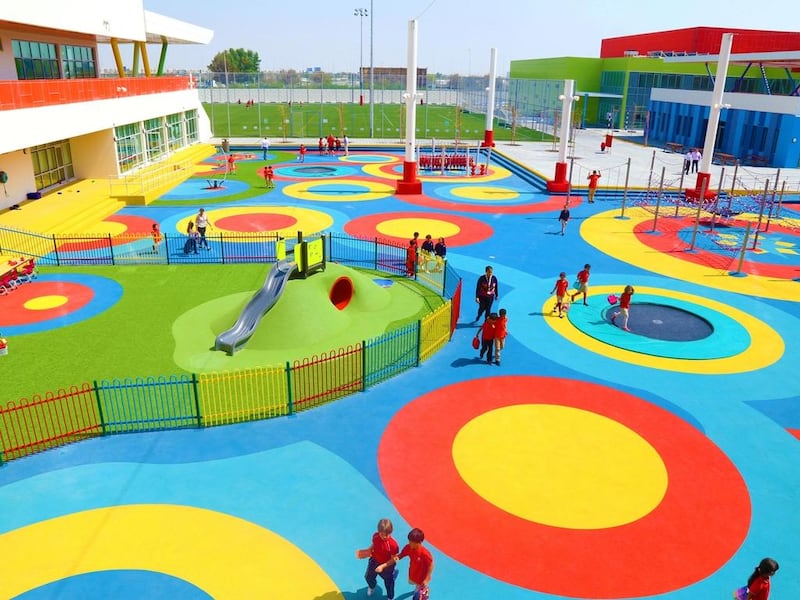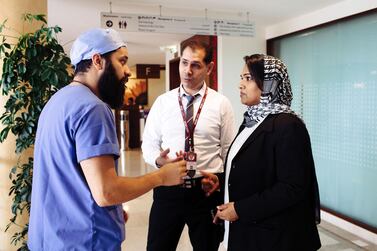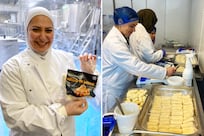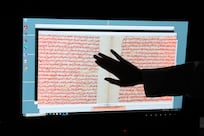Schools in the UAE will remain open as usual and parents have been urged not to keep their children at home over unfounded fears of coronavirus.
Schools have stepped up cleaning procedures to keep their campus virus-free and sent home information to parents with recommendations on how to keep their children safe.
"We should not panic. The schools are well equipped to educate and handle such situations," Dave Taylor, director of operations at Aldar Education, a school developer in the UAE, told The National.
"We’ve had parents contact the schools and our message is that it is business as usual.”
The increased hygiene precautions came a day after health authorities said the UAE had diagnosed four cases of coronavirus in a Chinese family who were visiting from Wuhan.
The disease has infected over 6,000 people globally and killed 170.
Schools are encouraging children to regularly wash their hands and cover their mouths when coughing or sneezing.
"We have more cleaning teams in all of our schools' in the evening and throughout the week,” said Mr Taylor.
"We have also increased the number of cleaners so that we can cover more of the school quicker,” he added.
Aldar has also installed additional hand sanitisers in schools.
"We know there is a confirmed case of coronavirus in the UAE and parents are concerned about the safety of their children,” said Mr Taylor.
Aldar Education runs 18 schools including charter schools, Adnoc schools and Aldar schools.
A risk and safety team at each school are working with the Department of Health and Abu Dhabi’s Department of Education and Knowledge to monitor and assess the situation.
Pupils suffering from diarrhoea or vomiting have been asked to stay home for at least two days and must present a doctor's note in case they return earlier.
Parents have also been advised not to send their children to school if they have fever, contagious rash, or a cough.
Mr Taylor said children at their schools are not wearing masks as that only leads to hysteria.
“Masks signify culture of worry or fear.
"We’ve made masks available to the clinic staff to protect them if they treat sick children. Pupils will be asked to wear a mask if they are ill until their parents collect them," he said.
How to protect yourself against coronavirus

Doctors and authorities in the UAE have asked people to remain calm, as the risk is low.
Dr Ahmed Abuzaid, general practitioner at Bareen International Hospital in Mohamed Bin Zayed City, said he had not been approached by parents worried about the coronavirus.
"People are worried because of fake news on social media," he said.
"Yesterday, a lot of people came to the hospital because they had the flu, something they usually ignore. Now, they are coming to get a check-up and learn about the virus."
He said the symptoms of coronavirus are similar to other respiratory illness and include high fever and shortness of breath.
He asked parents to ensure their children wash their hands for at least 20 seconds and use hand sanitisers.
Children must not touch their eyes, nose or mouth with dirty hands and avoid people who have respiratory illnesses.
"If a child is sick, it’s better to keep them at home. Parents should take him to a hospital for a check-up," he said.
Dr Abuzaid said there had been a lot of misinformation regarding the virus.
“Some patients, who received a package from China and later had a flu, were concerned the package could have passed the virus,” he said.
Parents say they have been taking extra precautions to protect their children from exposure.
"I remind my children to always drink water and to wash their hands," said Zamantha Regala, a Filipina mother in Ajman.
Beginning next week, she will ask them to wear a face mask and carry a bottle of hand sanitiser with them. She is also giving her children honey, lemon and multivitamins to boost their immunity.
Clementina Kongslund, 42, a Romanian mother of two, said her children's school in Dubai was teaching children the importance of basic hygiene to ward off any virus.








